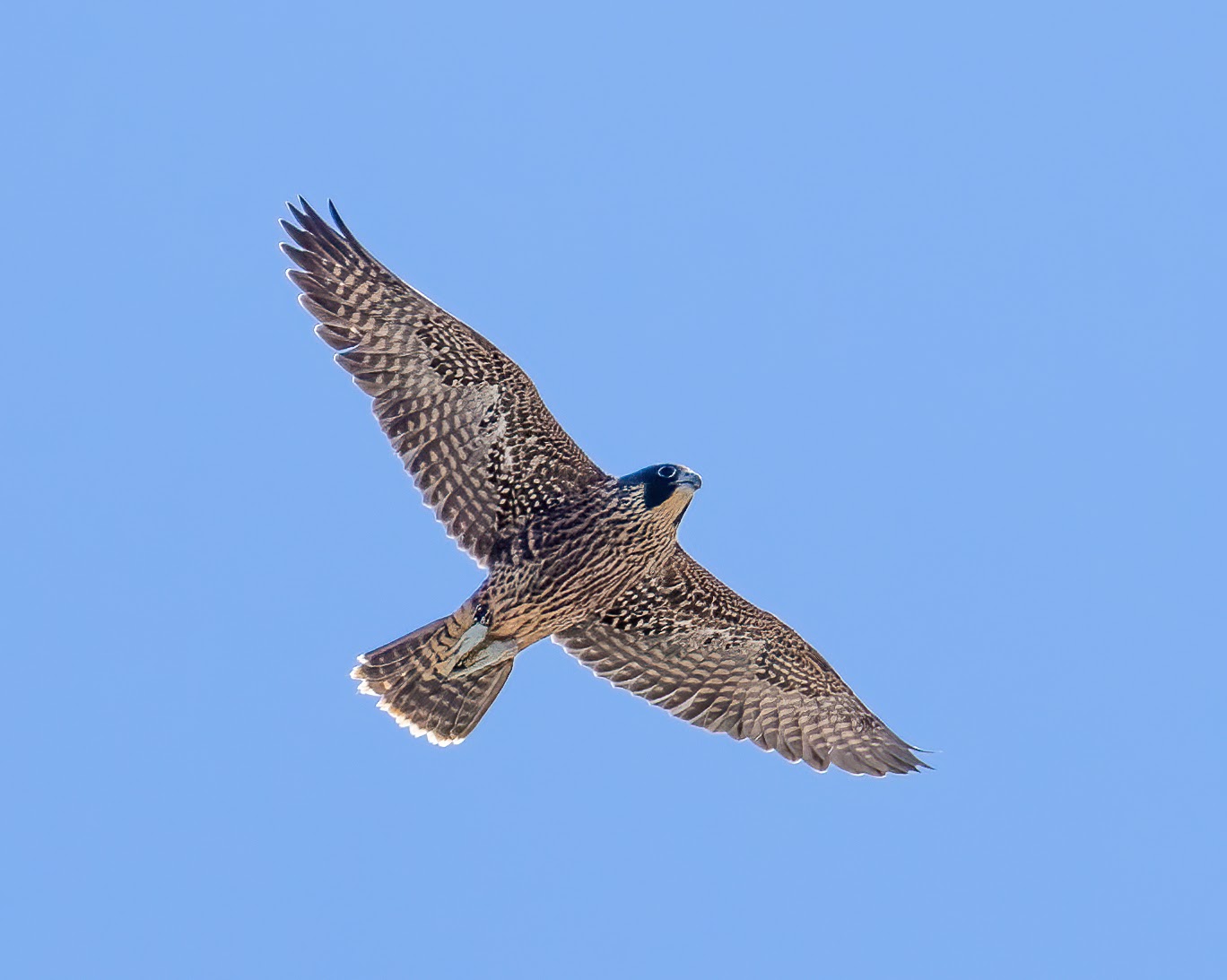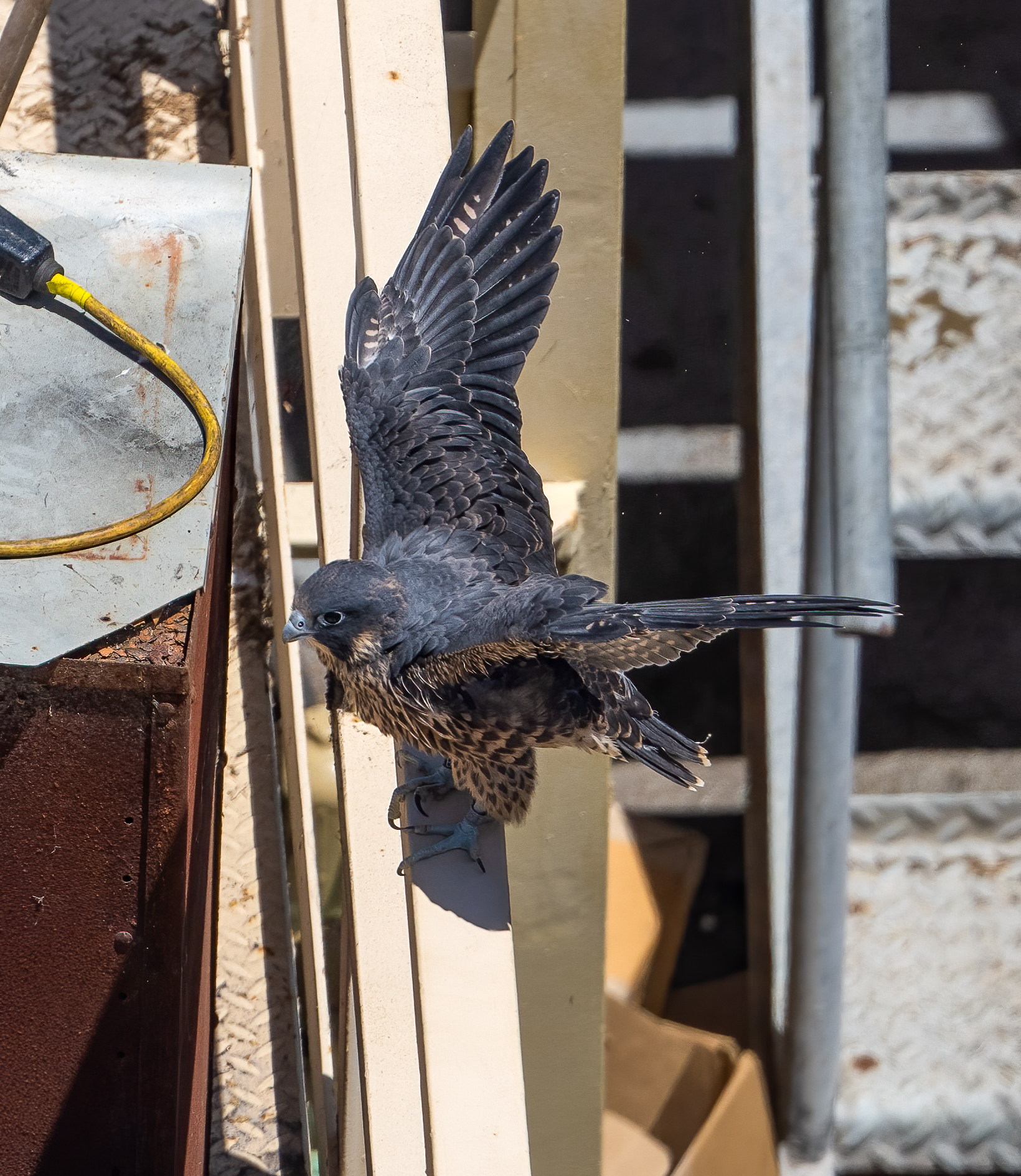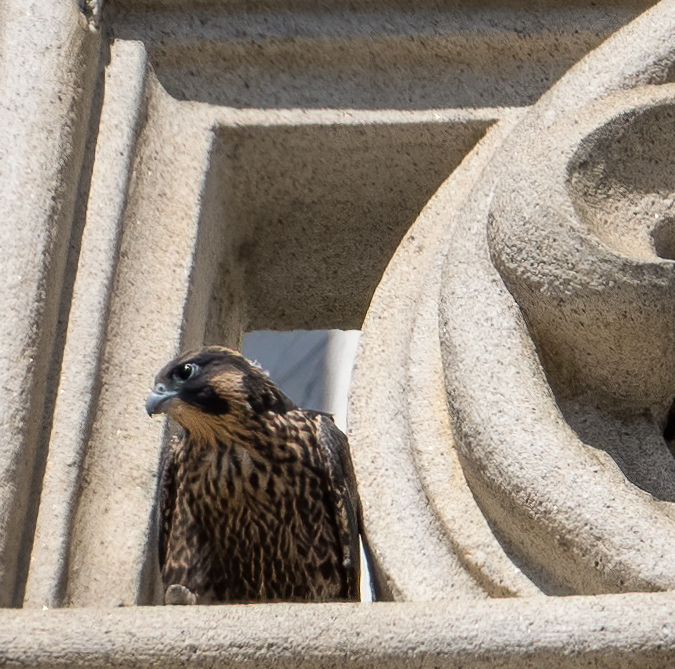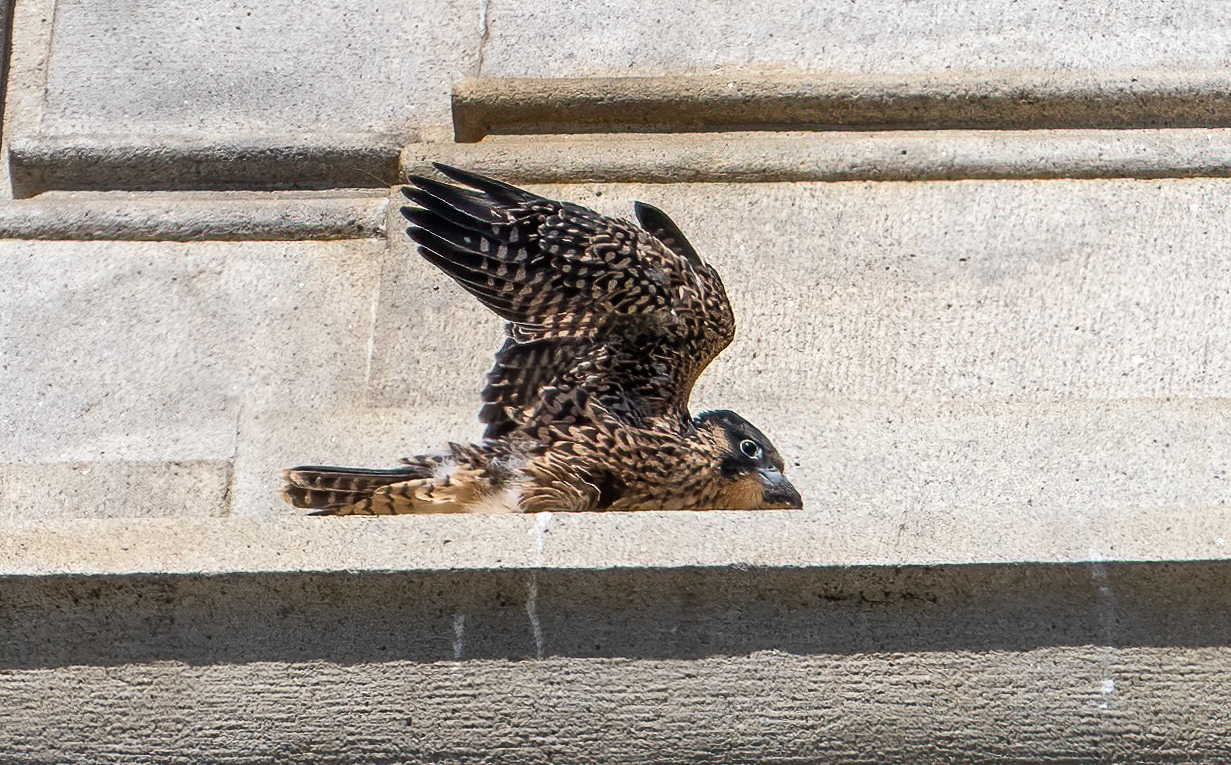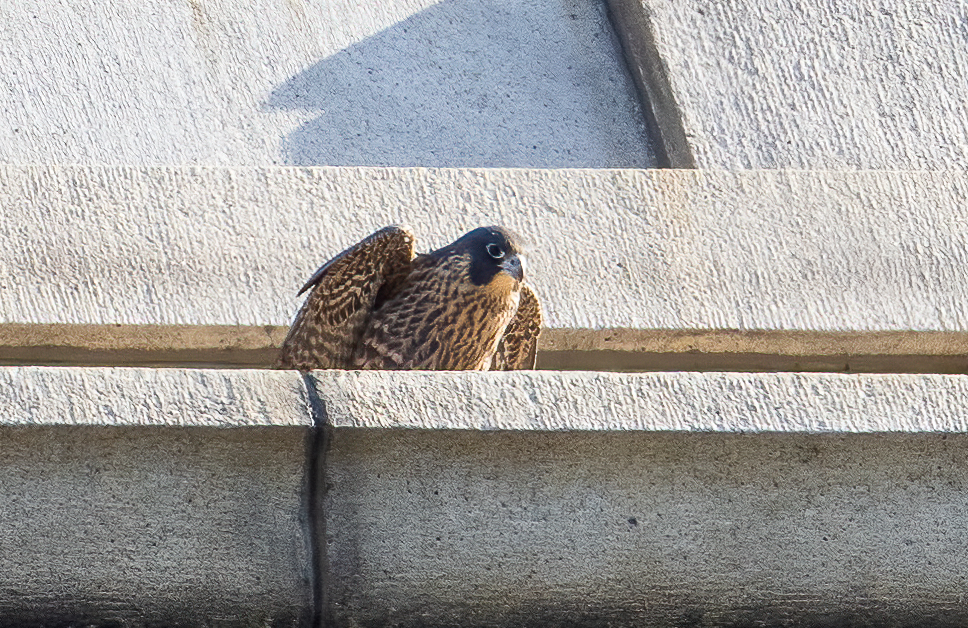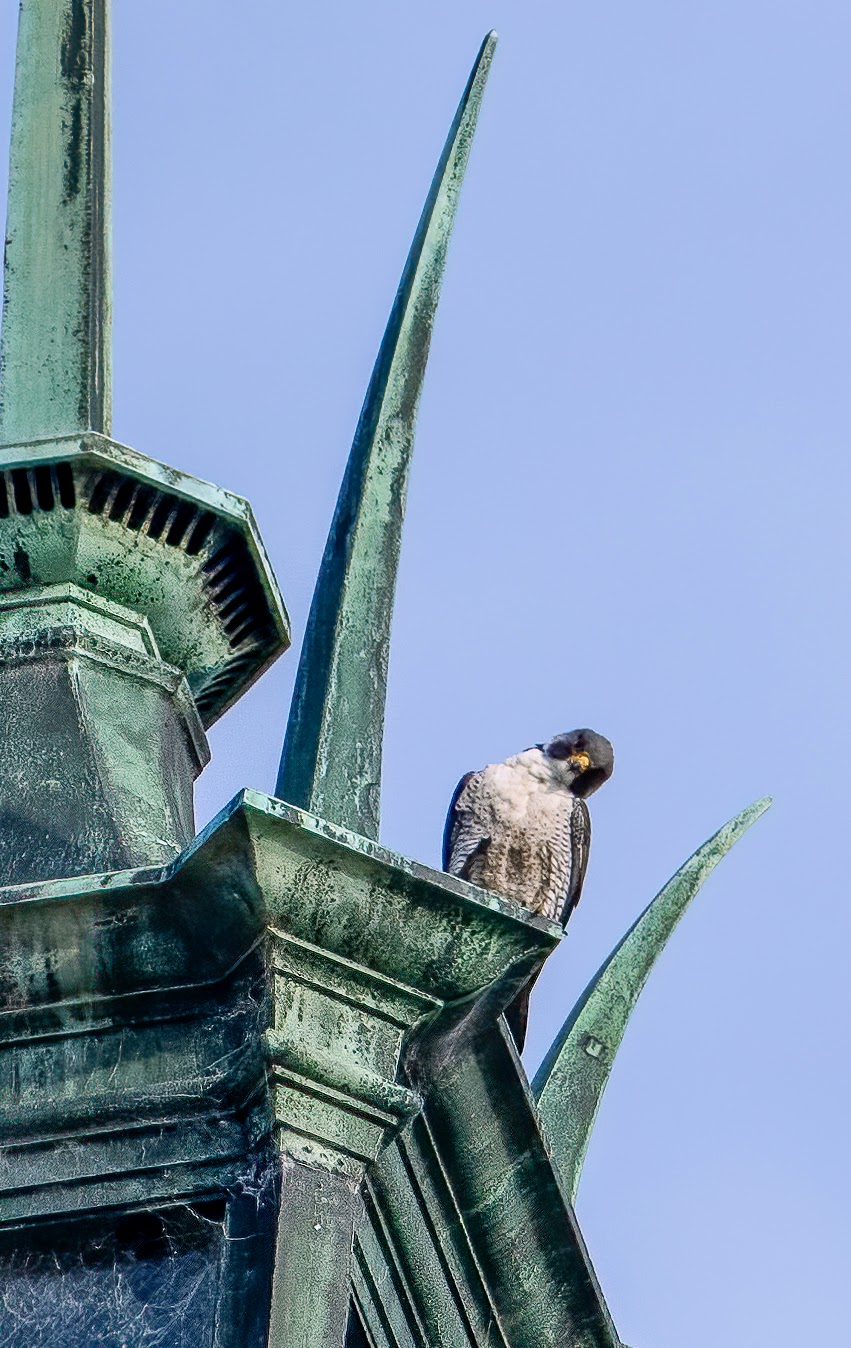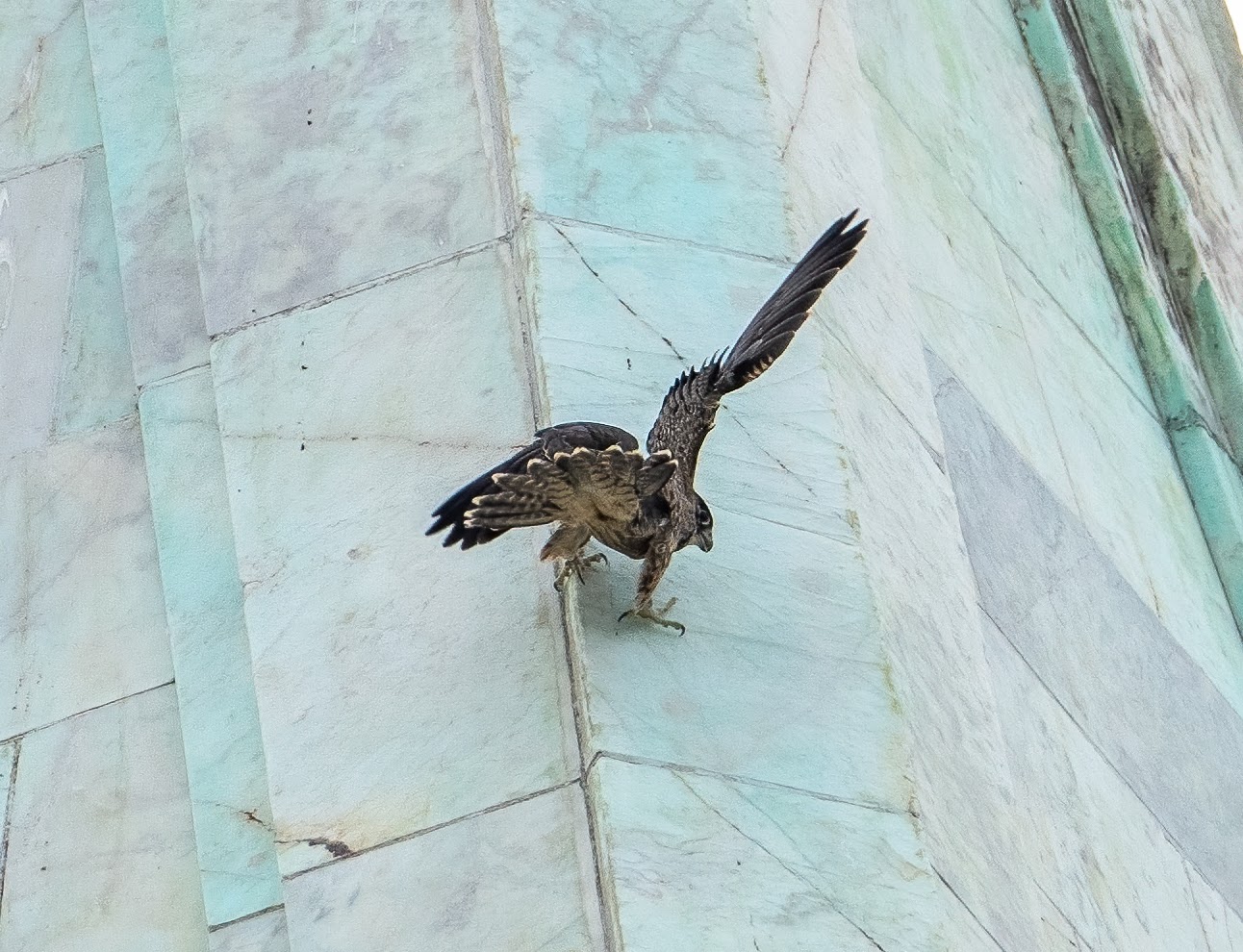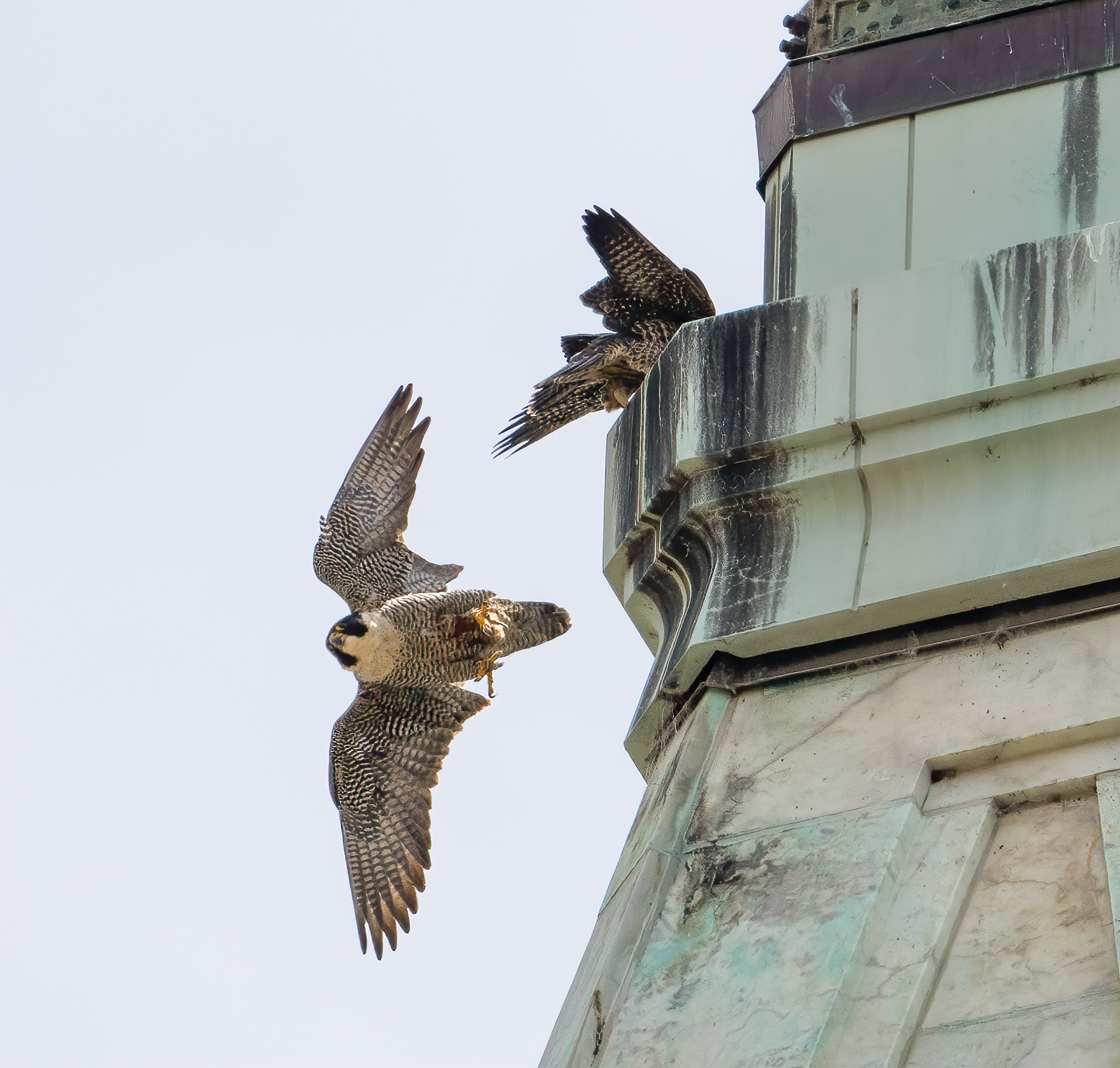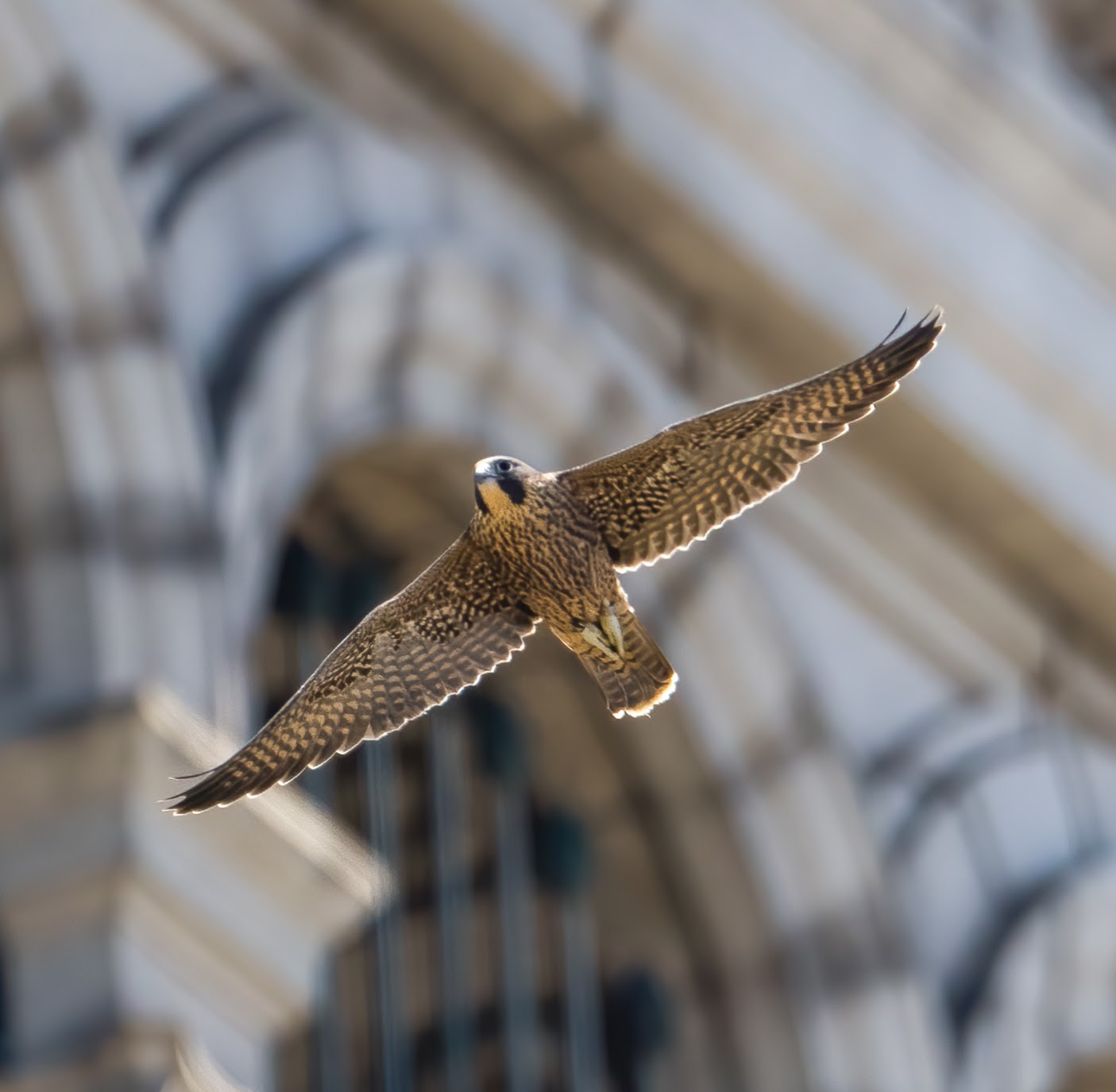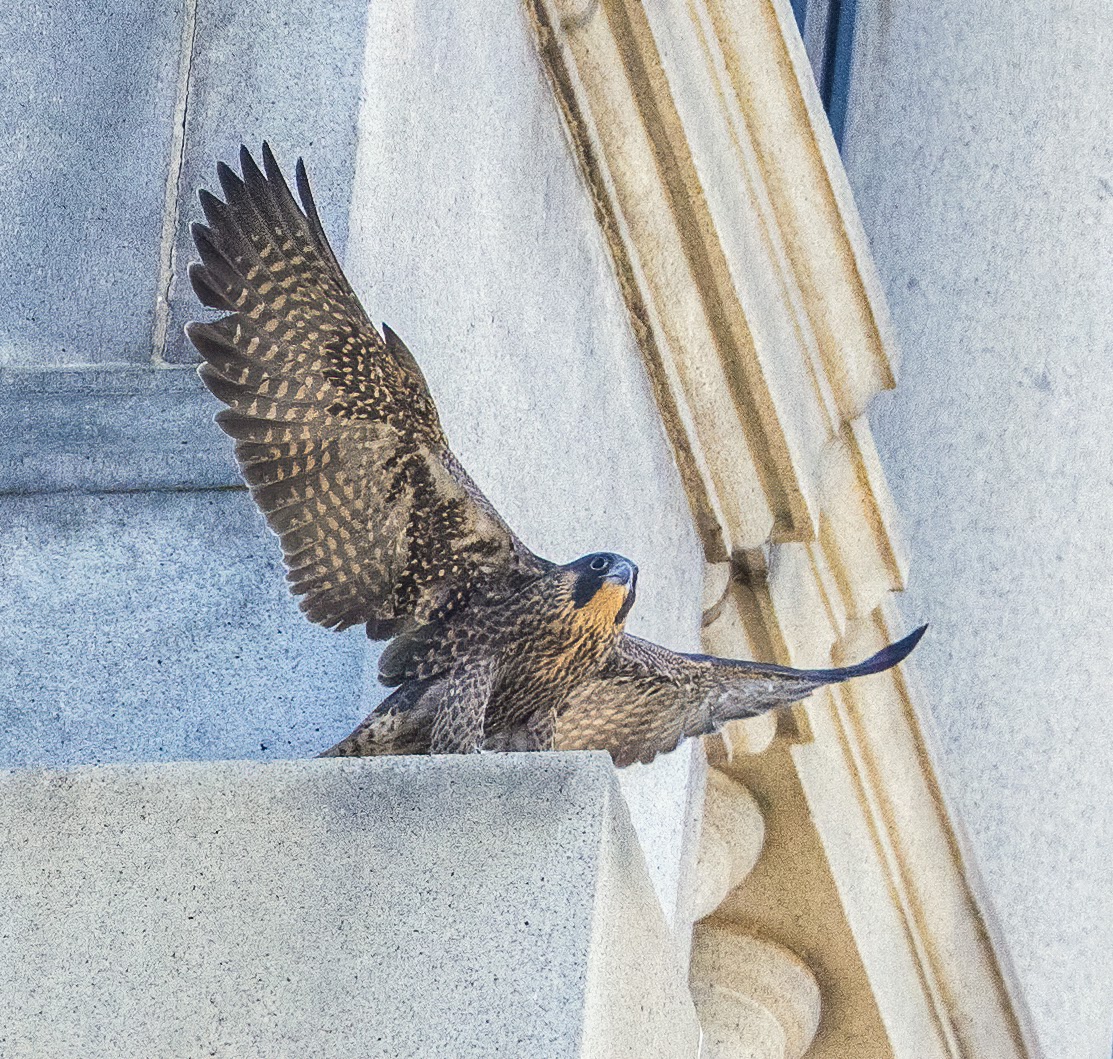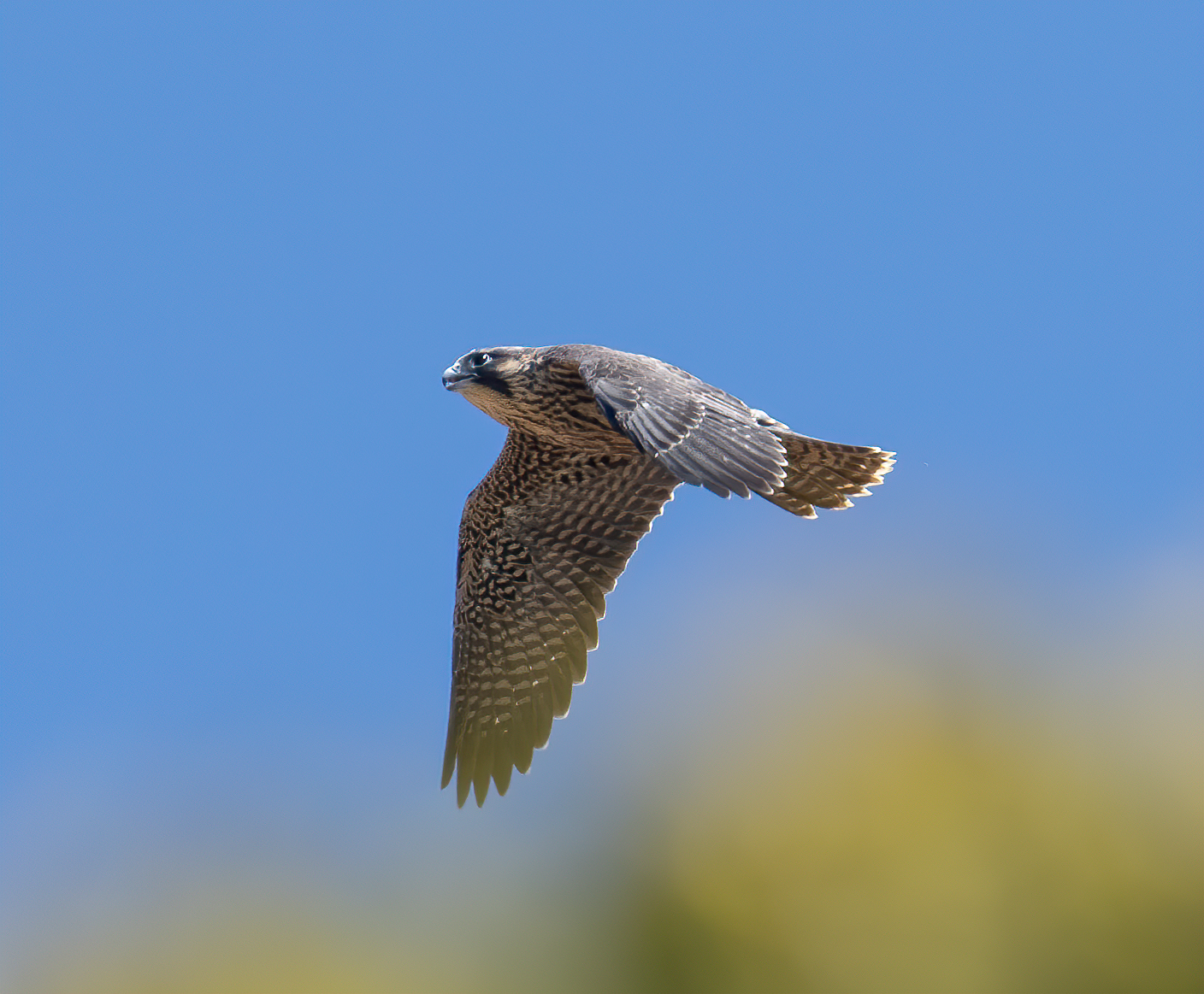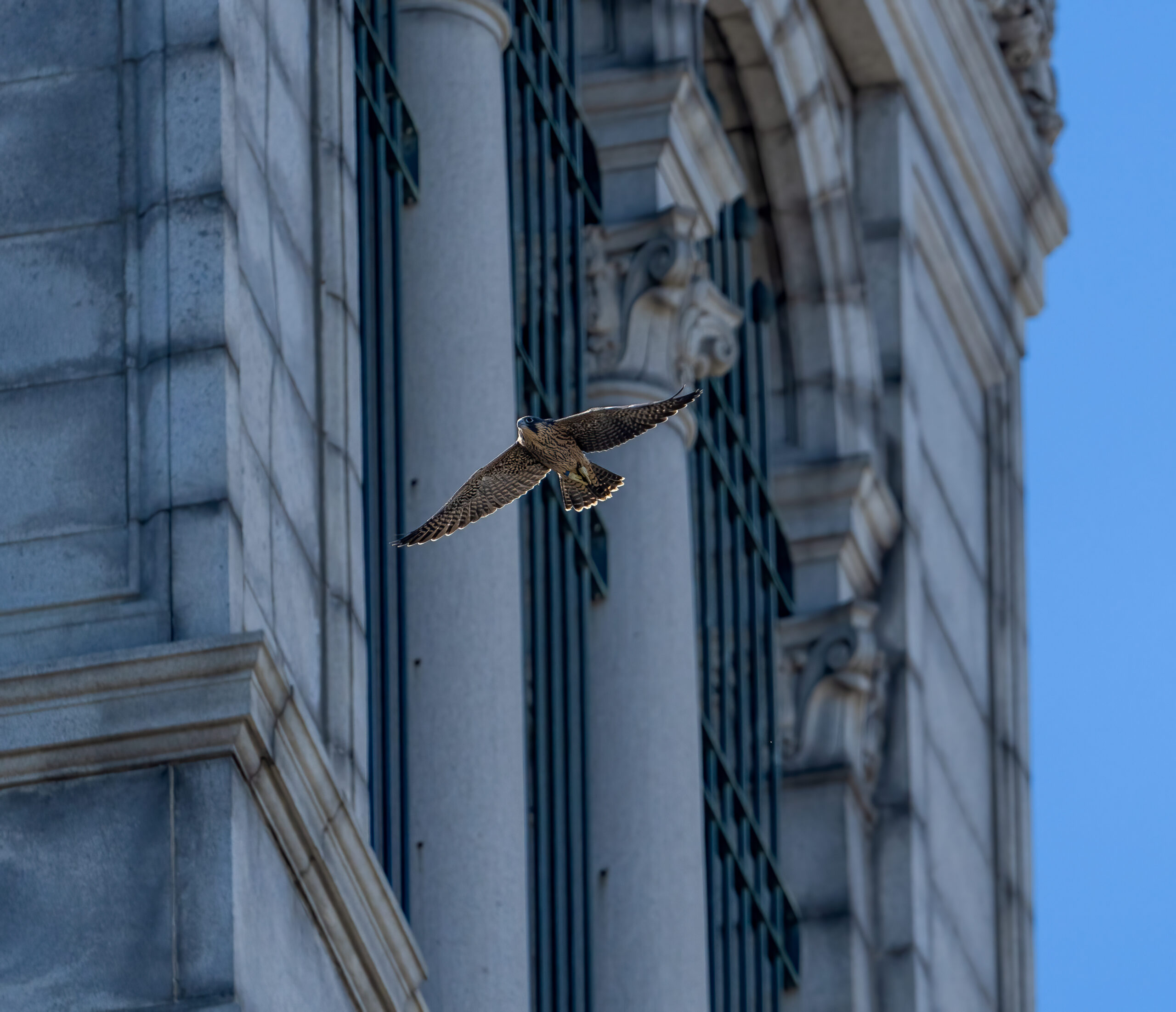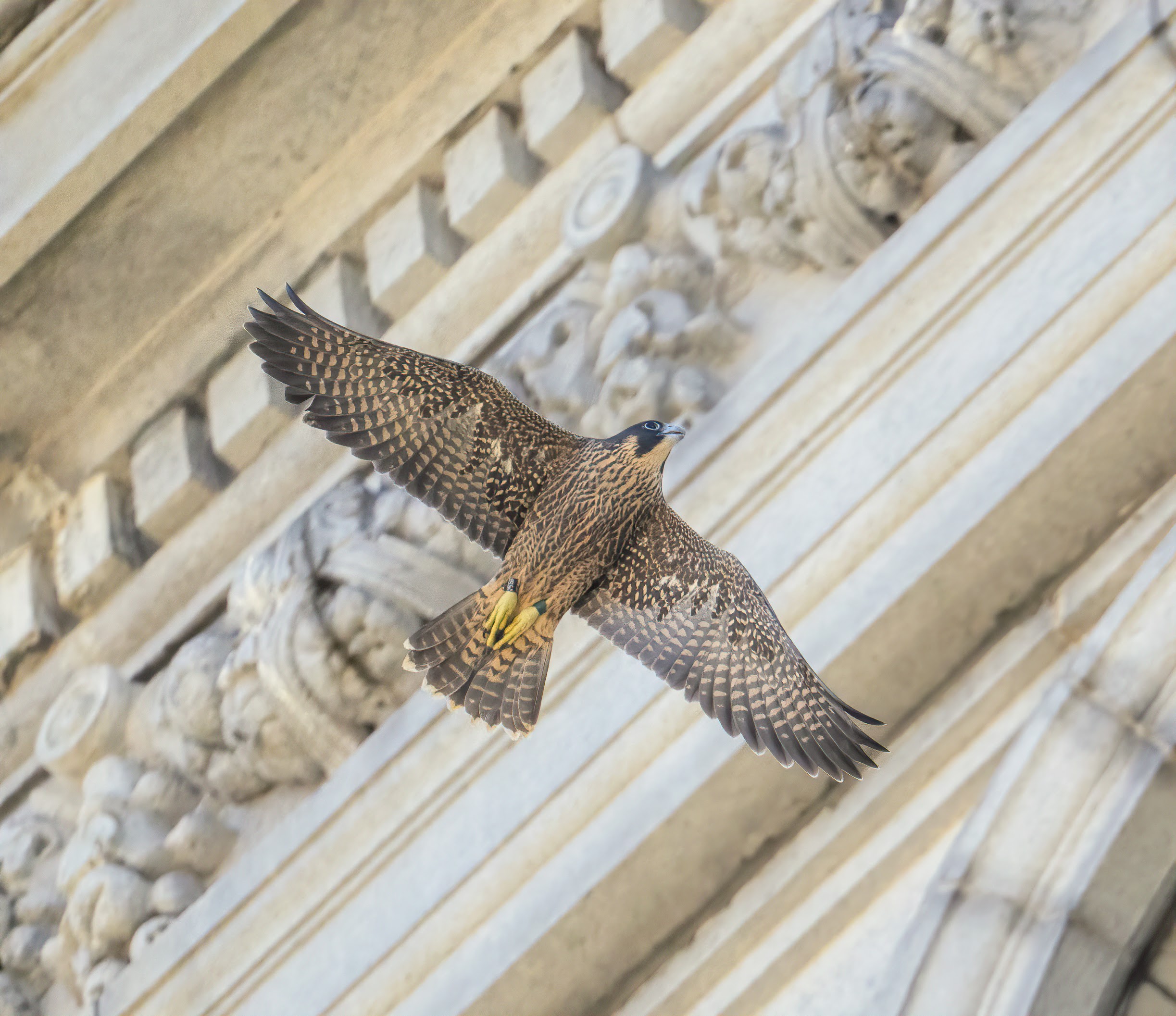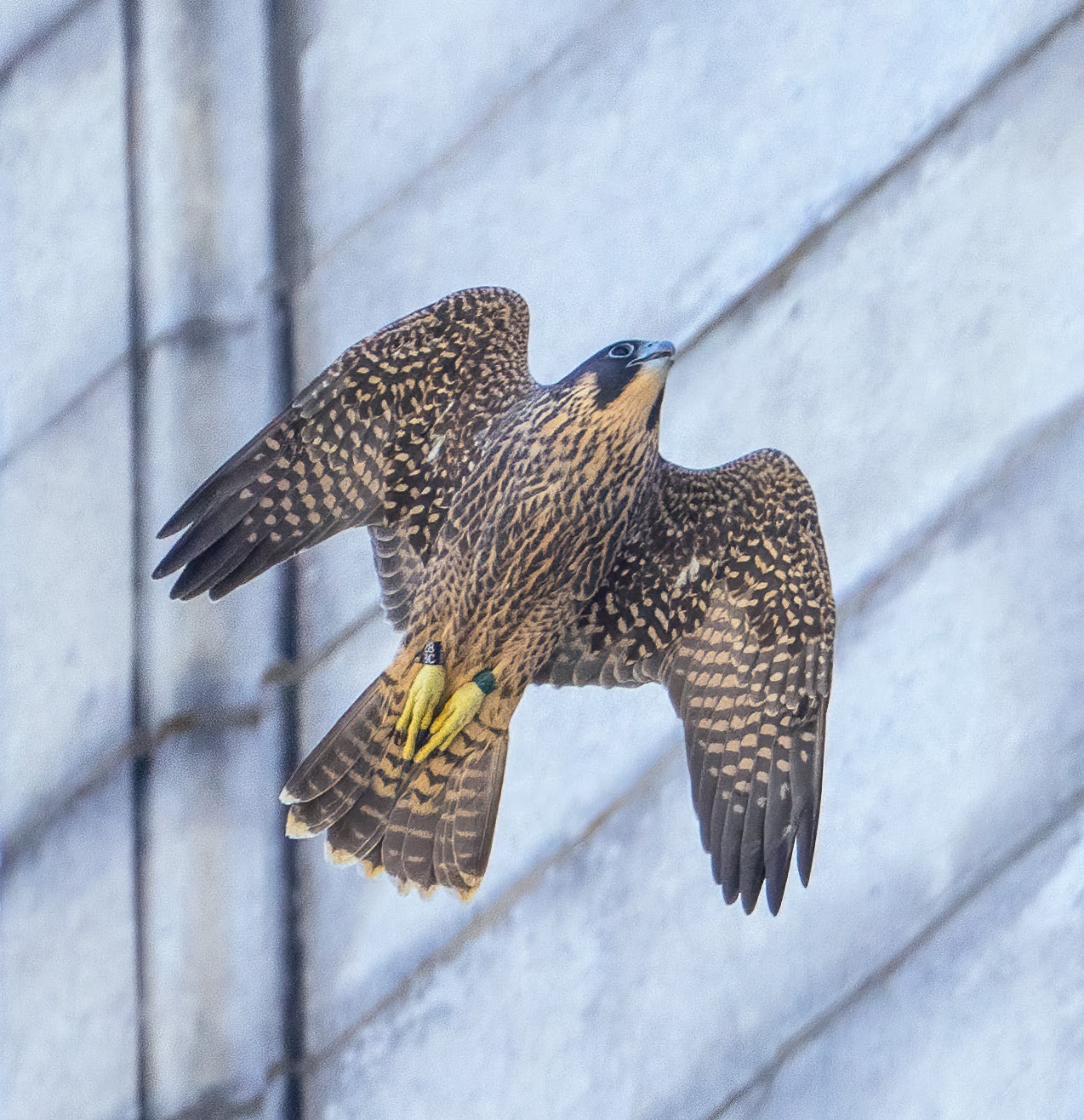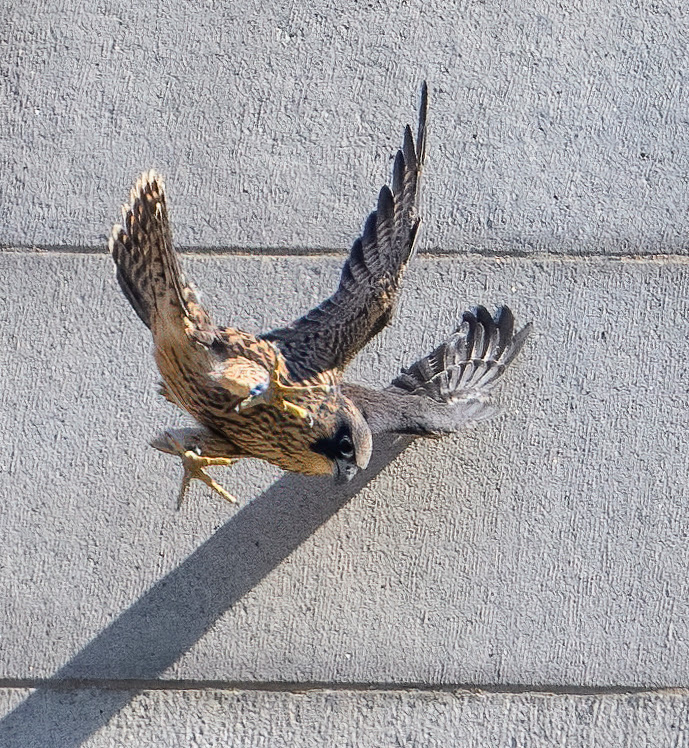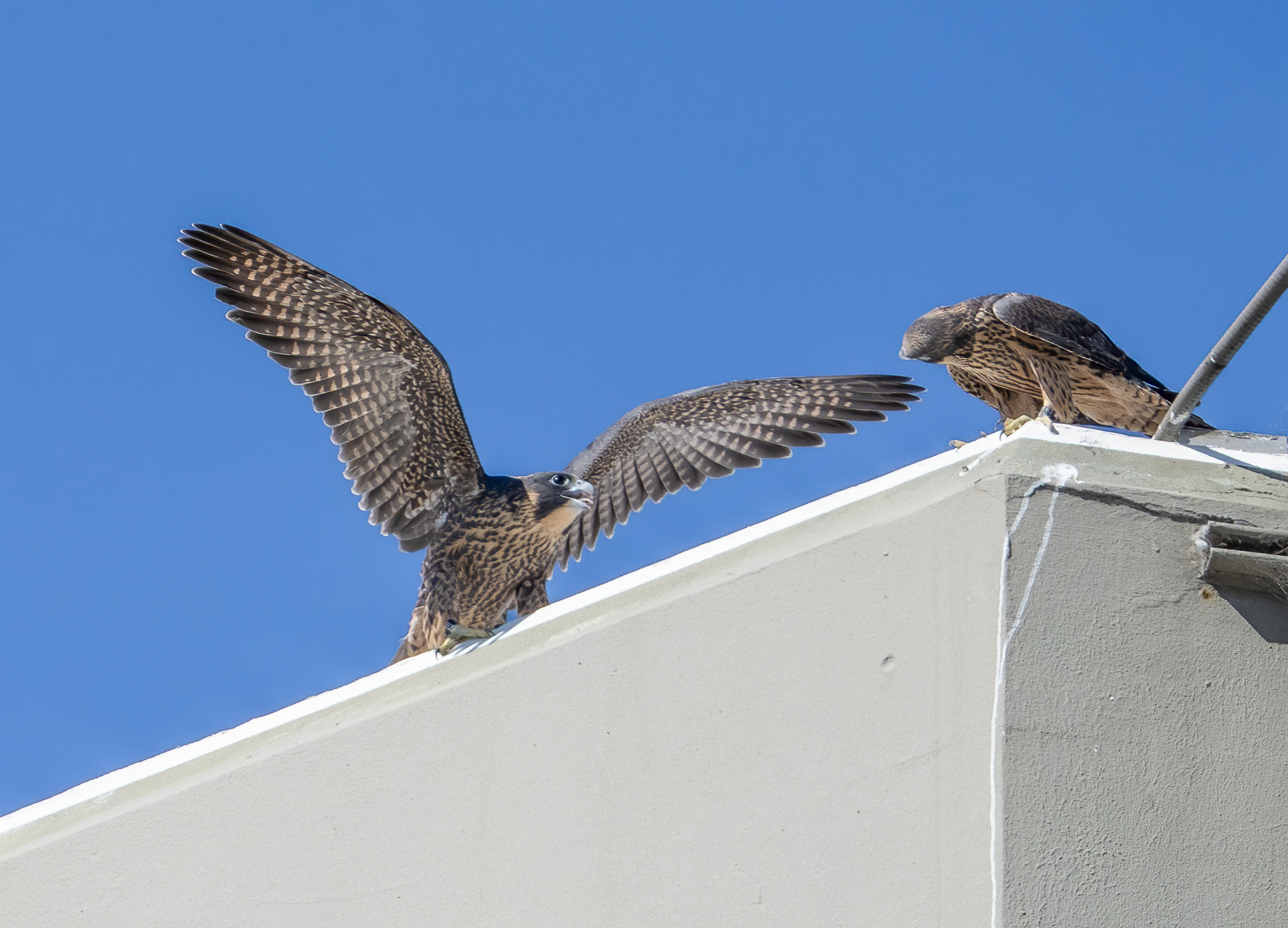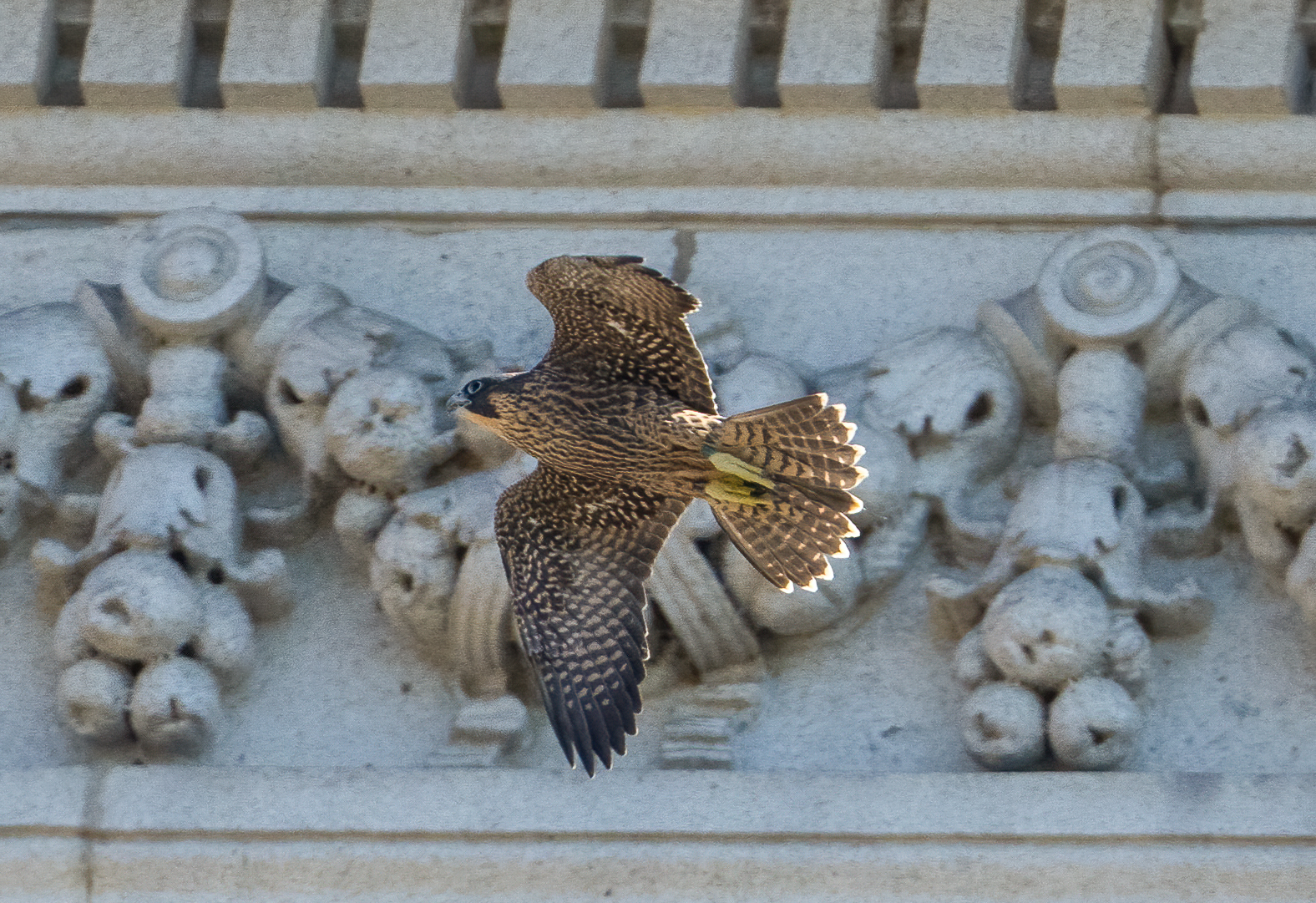And they’re off! UC Berkeley’s young falcons are flying
It's a time of fits and starts and first flights for Eclipse, Sol, Aurora and Nox at 2024 Fledge Watch.
June 6, 2024
Berkeley’s annual Fledge Watch is off to a flying start. All four peregrine falcons that hatched on the Campanile in April are now in the air.
Since the event began last weekend, up to 200 onlookers have stopped by campus to cheer the fledglings on and shoot photos and video. Cal Falcons volunteers are on site, ready to assist Eclipse, Sol, Aurora and Nox if they get stranded or hurt.
Wildlife advisory signage posted on campus during Fledge Watch led to the rescue on Tuesday night near Hertz Hall of an adult barn owl with a broken wing.
Bridget Ahern, a wildlife photographer, took the above photos of Annie and Archie’s offspring. She began photographing Berkeley’s falcons while Annie, the campus’s longtime female falcon, and her mate Grinnell, who died in March 2022, were a pair.
Ahern said it’s a yearly challenge to learn which fledgling is which and where each likes to hang out. So far, she added, brothers Eclipse and Nox “seem to be pretty loud and have slightly different variations in their calls.”
Mary Malec, a Cal Falcons raptor expert, described Nox as “really tiny,” compared to his brother. “He is also much lighter brown on the chest, head and back.”
The two sisters, close in size, “are hard to tell apart,” said Malec, “but Aurora is darker on the chest than Sol.” The yellow tape on one of Sol’s legs is easy to spot, she added, but the green tape on Aurora can look similar to the blue tape on Nox. Eclipse has no colored tape.
Malec said Fledge Watch will end soon, after Cal Falcons is certain each raptor has had four or five safe landings.
For three to eight weeks after fledging, young peregrines typically still need their parents, explained Sean Peterson, a Cal Falcons ecologist, in a livestreamed Q&A yesterday about Fledge Watch. “After that, they’re kind of gently encouraged to go off on their own and start exploring.”
